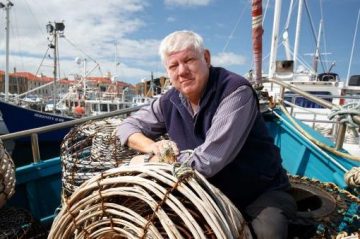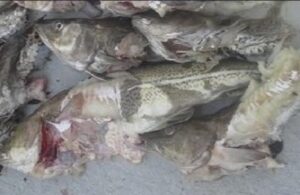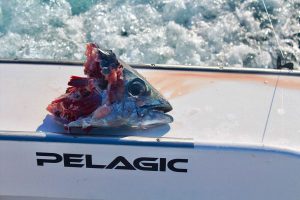Tag Archives: Tasmanian Rock Lobster Fisherman’s Association

Lobster fisherman hopes to survive impact of coronavirus, rising costs
In Tasmania’s north-west, fisherman Scott Inkson is one of the lucky ones who may survive the impact of the coronavirus on the lobster industry. As COVID-19, as it is now known, continues to prevent live fish exports to China — his main market — he has decided to set up shop off his boat in Wynyard and give the community a cheap treat., “After 90 minutes on the wharf we completely sold out., King Island fisherman Mark Smith, 28, has struggled to sell his lobsters this season. >click to read< 23:15

Support local fishers by buying local! Virus outbreak in China triggers Tasmanian lobster lockout
Tasmania’s rock lobster industry has been left treading water following mass cancellations from Chinese buyers.,, “Because of that the restaurants have cancelled their orders,” Mr Sansom said. He estimated more than 90 per cent of Tasmania’s red rock lobster market was exported to China each year. “The exporters, their tanks are full. Which means the fishermen can’t sell it, so their boats are full,” he said. “As far as I know no one is exporting. >click to read< 10:06






 Tasmania’s rock lobster fishermen are a hardy bunch, weathering everything from wild storms to toxic algal blooms, but they have been blindsided by a wave of costly red tape. Third- and fourth-generation rock lobster fishermen who have built an $85 million-a-year trade, mostly via exports to Asia, say new regulations at both state and federal levels threaten chaos. Changes to state regulations proposed from March next year will force rock lobster fishermen to unload their catch in the same area it is caught. While designed to prevent fishermen taking extra lobsters from capped catch areas on their journey home, fishermen say the rule will force them to unload hundreds of kilometres away from their home ports and buyers. Like other fishing industries, they also face massive hikes — up to 116 per cent — in marine safety compliance fees, due to a federal takeover of the role by the Australian Maritime Safety Authority. They believed the state change was a lazy means of making policing easier for fisheries management. “We are not criminals and we shouldn’t be treated like criminals,” said Mr Parker’s brother and fellow rock lobster fisherman, John Parker. A submission by the Tasmanian Rock Lobster Fisherman’s Association describes the state changes as “overly bureaucratic, burdensome and punitive”, as well as unjustified, given there was no evidence of a compliance problem.
Tasmania’s rock lobster fishermen are a hardy bunch, weathering everything from wild storms to toxic algal blooms, but they have been blindsided by a wave of costly red tape. Third- and fourth-generation rock lobster fishermen who have built an $85 million-a-year trade, mostly via exports to Asia, say new regulations at both state and federal levels threaten chaos. Changes to state regulations proposed from March next year will force rock lobster fishermen to unload their catch in the same area it is caught. While designed to prevent fishermen taking extra lobsters from capped catch areas on their journey home, fishermen say the rule will force them to unload hundreds of kilometres away from their home ports and buyers. Like other fishing industries, they also face massive hikes — up to 116 per cent — in marine safety compliance fees, due to a federal takeover of the role by the Australian Maritime Safety Authority. They believed the state change was a lazy means of making policing easier for fisheries management. “We are not criminals and we shouldn’t be treated like criminals,” said Mr Parker’s brother and fellow rock lobster fisherman, John Parker. A submission by the Tasmanian Rock Lobster Fisherman’s Association describes the state changes as “overly bureaucratic, burdensome and punitive”, as well as unjustified, given there was no evidence of a compliance problem. 










































